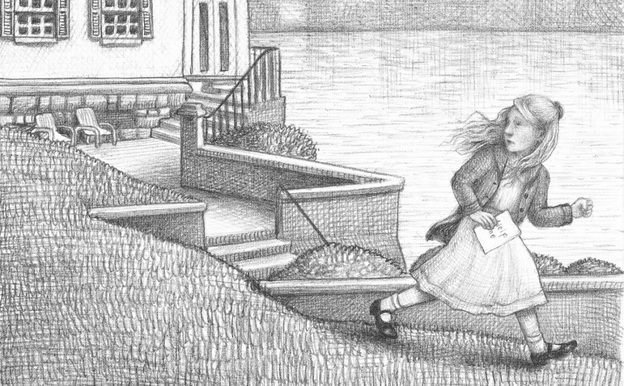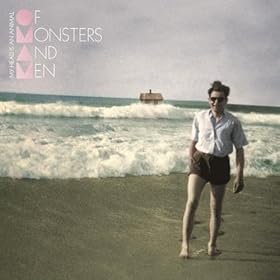If I die young, bury me in satin
Lay me down on a, bed of roses
Sink me in the river, at dawn
Send me away with the words of a love song
"If I Die Young" by The Band Perry was playing on the radio as I was driving into work last year. When the song ended, the DJ (Minnesota's attempt at a shock jock - a happily married man with college-aged children trying to sound edgy) came on the air and commented that this was a terrible song. I was puzzled, because I thought it was quite catchy. He said it glorified dying young and that was a horrible message to send to teen listeners in particular. The more I thought about it, the more I thought he was right.
When you're a teen, dying somehow sounds romantic. Why else is the phrase "
Live fast, die young" so iconic? Not that the innate fear of death or the desire to live is absent. But it seems so wonderfully dramatic. You fantasize about who would go to your funeral. How the boy you've been crushing on for years will break down and confess that he always liked you but never had the courage to say anything. Your friends will be devastated and will sob dramatically. Your enemies will be overcome with remorse.
Most teens ignore the reality of death - or at least gloss over the most significant aspects. There's the part about being dead, of course, which would be lousy for many different reasons. I don't think most teenagers comprehend the complete devastation their families would experience if they died. Realistically, a teenage boyfriend will not spend a life of celibacy mourning your loss. Your friends will grieve, but they will grow up, meet new people, and have different experiences. You will fall back into the recesses of their mind, recalled only occasionally with a twinge of sadness. But your parents and siblings will never recover. Will never be the same. There's nothing romantic about the death of a child or a sibling.
Death is one of the most prevalent topics in YA literature. To be fair, it is an ever-present topic in all genres of literature, both modern and ancient. We need look no further than
Romeo and Juliet to see a tale lauding the beauty of dying for young love.
In the modern YA realm, far too many novels romanticize death, but a surprising amount also realistically describe the devastation of a teen's death. In a sweeping over-generalization, the romanticizing books can be broken down into two categories: (1) Fatal disease and (2) Self-sacrificing.
Sentimental Treatment of Death
Fatal Disease
The best representation of the fatal disease category is Lurlene McDaniel, but many other authors have written similar books. How I lapped those books up as a teen! These characters had cancer, diabetes, heart defects, AIDs, and plenty of other problems, but they all had such drama filled lives. Even when they were suffering and dying, the pain seemed uplifting and hopeful. And there was always a handsome, sensitive boy involved. It made me lament that my body was so stubbornly healthy.
Self-Sacrificing
The self-sacrificing category sends a much more troubling message. I'm not talking about teens who risk their lives to save the good of mankind or stories about people taking incredible risks during wartime. I'm talking more about teenage girl characters who are willing to die to save their boyfriends. As a fantasy, throwing yourself on a pyre for love is laudable and certainly makes for an enticing story. But few of these books focus on the harsh realities that the departed heroine would leave behind.
Let's consider
Twilight, for example. Bella does all sorts of stupid, dangerous things over the course of the series, including being willing to sacrifice herself to save Edward (and also her mother). She rarely thinks about the effect her death would have on Charlie or her mother (other than the time she's thinks she's saving her mother). It's all about helping the love of her life. Similarly, in the Iron Fey series, Meghan disappears into the Never Never. Granted, she is going in there to save her little brother, which is admirable. But the series focuses barely touches on the horror her mother and stepfather must have felt at her absence.
Realistic Discussion of Death
In some cases, YA novels deal with the aftermath of death quite well. Generally, these are books where a sibling has died (or a parent). One of the best examples I can think of is
The Sky is Everywhere by Jandy Nelson. Ms. Nelson's skillful prose portrays a forever changed family after the death of Lennie's sister Bailey.
If I Stay by Gayle Forman is another heartbreaking book. We feel the horror and grief of Mia's potential death and the loss of her parents and little brother. I haven't read
Where She Went yet, but I imagine it also deals with the hard reality well. Another book that I presume is a realistic portrayal of
Thirteen Reasons Why by Jay Asher which I have not read.
The Fault in Our Stars by John Green is getting a lot of attention lately. Everyone, including me, loves it (
my review). In some ways, it glorifies cancer through Hazel, Augustus, and Isaac's frequent gallows humor that makes cancer and death seem funny. But by the time you finish the book, you won't think cancer or death is "cool" at all. Unlike most books, the characters' physical and mental pain is never sugarcoated. It strips away your dignity, your hopes, your simple pleasures. Mr. Green also painted a visceral portrait of how the characters' illnesses impacted their families. What happens when "you're not a mother anymore?" When you see your friends die? The readers' hearts are torn apart in this book. You wouldn't wish this life on your worst enemy.
The treatment of death as a theme in YA novels is mixed. While I dislike an unrealistically romantic view of death as a message, I would never advocate censoring novels or even discouraging a teen from reading such a book. These books are a wonderful opportunity to broker a discussion about what death really means and how grief will effect one's life. It would be a fascinating topic for a book club or English class - to read one book portraying death sentimentally and one showcasing its aftermath.
How do you think the YA genre generally handles death?
What books over-sentimentalize death? What books portray death realistically?/






































